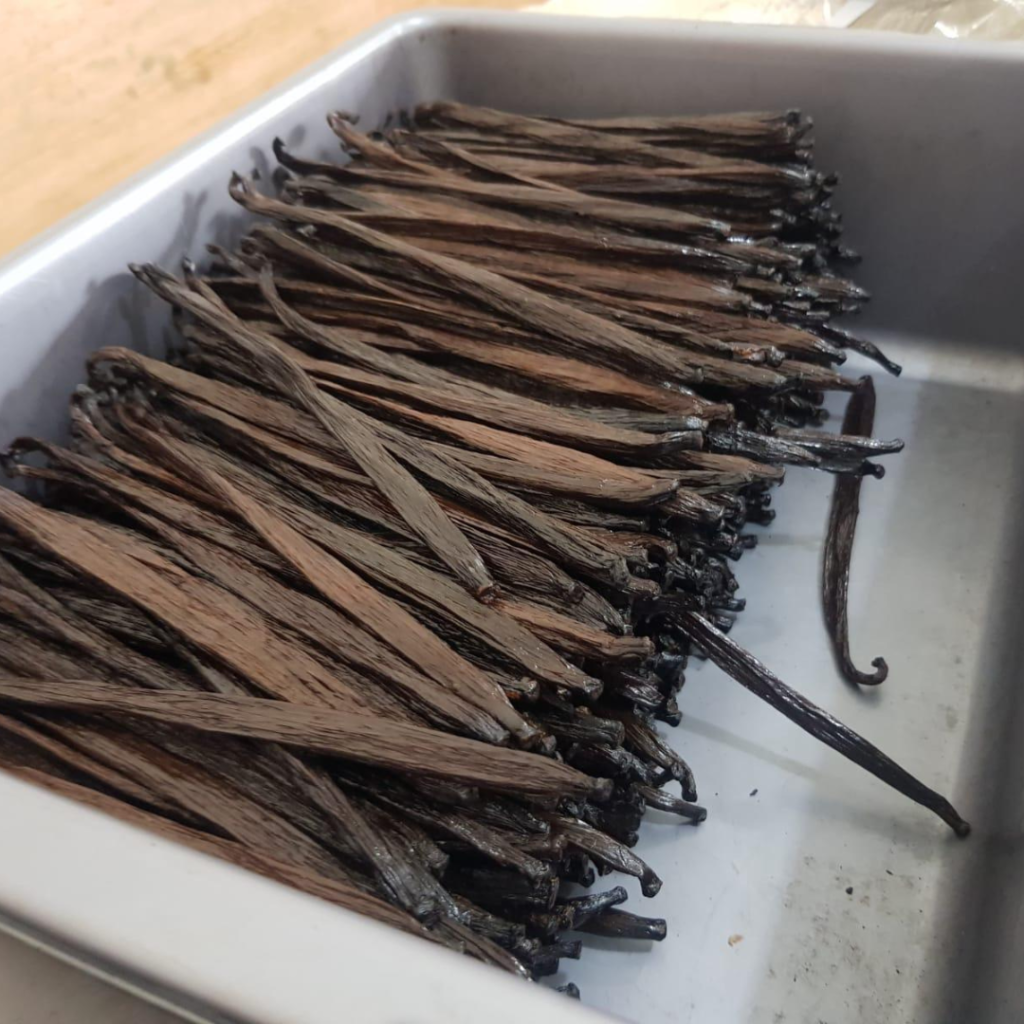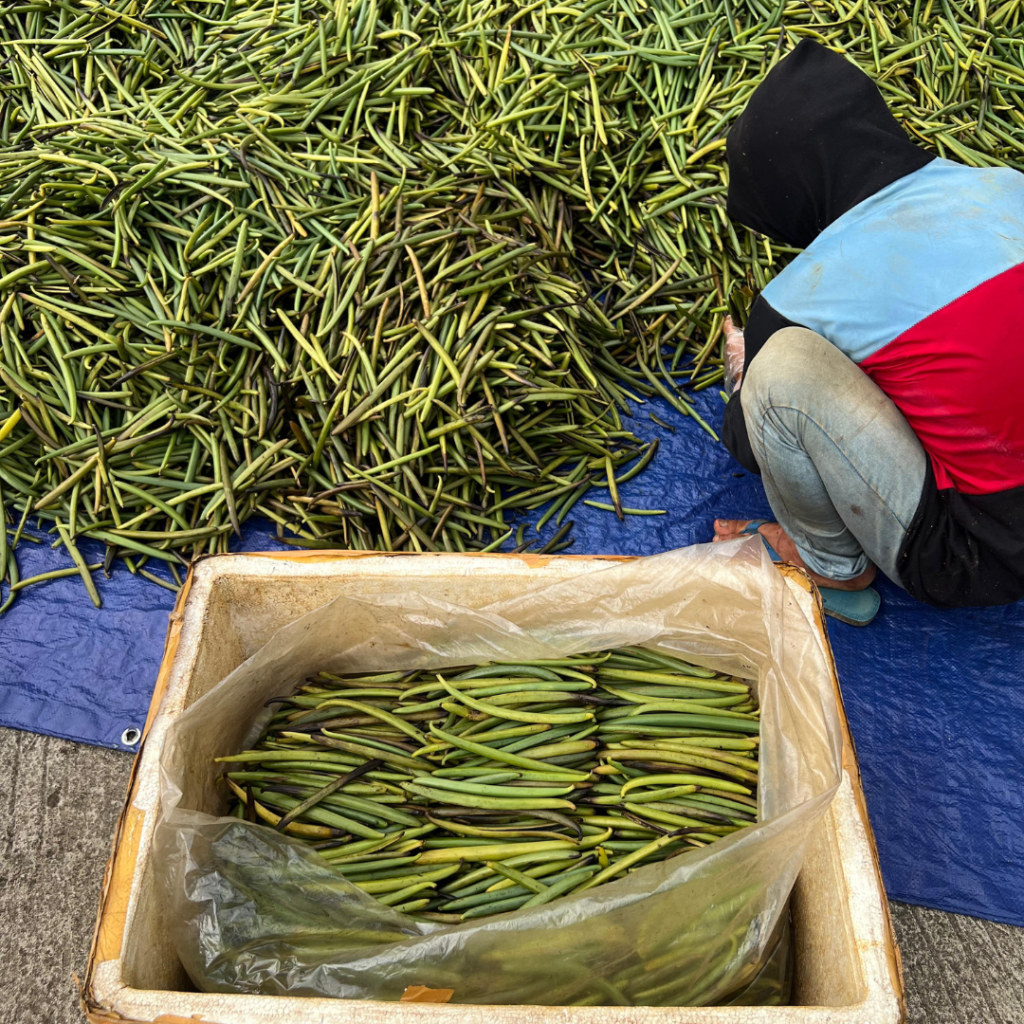
Indonesia is one of the world’s largest producers of organic vanilla, supplying premium-quality beans to global markets. As consumers and businesses become more conscious of sustainability, the demand for chemical-free vanilla has increased significantly. Many buyers seek ingredients that are not only flavorful but also grown using ethical and eco-friendly methods.
Unlike conventionally grown vanilla, which often relies on synthetic pesticides and fertilizers, organic vanilla from Indonesia is cultivated naturally. Farmers use traditional techniques that protect the environment, preserve soil health, and enhance the quality of the beans. This sustainable approach not only produces better vanilla but also supports local farming communities.
But how exactly does Indonesia’s organic vanilla go from farm to market? Let’s explore the journey of this sought-after ingredient and why it stands out in the global market.
How Farmers Cultivate Chemical-Free Vanilla
The journey of organic vanilla begins in the tropical regions of Indonesia, where the warm climate and fertile soil provide ideal conditions for vanilla orchids to grow. Unlike many crops, vanilla requires a high level of care and patience, as it takes several years before the vines start producing beans.
Traditional and Sustainable Farming Practices:
- Hand Pollination: Vanilla orchids bloom for only one day, and in Indonesia, they lack natural pollinators. To ensure pollination, farmers carefully transfer pollen from one flower to another by hand, a labor-intensive yet essential step in the cultivation process.
- Agroforestry Methods: Instead of growing vanilla as a monoculture, many farmers practice agroforestry—intercropping vanilla with shade trees like cacao, coffee, and fruit trees. This method improves soil fertility, prevents erosion, and supports biodiversity.
- Organic Fertilization: Chemical fertilizers are replaced with compost, natural manure, and plant-based nutrients that enrich the soil without harming the environment.
- Eco-Friendly Pest Control: Instead of using synthetic pesticides, farmers adopt natural solutions like companion planting, neem oil, and introducing beneficial insects to keep pests under control.
By following these sustainable techniques, Indonesian farmers ensure that their vanilla meets organic certification requirements while producing beans of the highest quality.
Organic Certification: What It Means for Quality and Sustainability
For vanilla to be recognized as organic, it must meet strict international standards that guarantee it is grown, harvested, and processed without harmful chemicals. Certification organizations, such as USDA Organic and EU Organic Certification, conduct thorough inspections to verify compliance.
What Organic Certification Ensures:
- No Synthetic Chemicals – The entire cultivation process is free from artificial pesticides, herbicides, and fertilizers
- Sustainable Farming Practices – Organic vanilla is grown using methods that protect the soil, conserve water, and reduce deforestation.
- Higher Quality and Purity – Since organic vanilla is free from chemical residues, it retains its natural flavor and rich aroma
- Ethical Sourcing and Fair Trade – Many organic vanilla farms operate under fair trade policies, ensuring farmers receive fair wages and better working conditions.
Organic certification is not just a label—it reflects a commitment to quality, sustainability, and ethical production. Buyers who choose certified organic vanilla can trust they are getting a premium product while supporting responsible farming.
The Impact of Sustainable Vanilla Farming on Local Communities
The shift toward organic vanilla farming has had a profound impact on local communities in Indonesia. Many small-scale farmers, who once relied on conventional methods, have transitioned to organic production, leading to economic and environmental benefits.
How Organic Vanilla Supports Farmers and Their Families:
- Higher Market Value: Organic vanilla commands a premium price, providing farmers with better income and financial stability.
- Improved Soil and Crop Health: By avoiding chemicals, farmers protect their land for future generations, ensuring long-term productivity.
- Access to Global Markets: Many international buyers prioritize sustainable vanilla, creating new opportunities for Indonesian farmers to sell their products worldwide.
- Stronger Farming Communities: Many vanilla growers form cooperatives, allowing them to share resources, gain training in organic farming techniques, and negotiate better prices for their crops.
By choosing chemical-free vanilla, buyers play a role in supporting farming communities that prioritize sustainability and ethical agriculture.
Conclusion: The Future of Indonesia’s Organic Vanilla Industry
Indonesia’s organic vanilla industry is more than just an agricultural sector—it is a movement toward sustainable farming, environmental protection, and ethical business practices. As global demand for chemical-free vanilla continues to grow, Indonesian farmers are proving that high-quality vanilla can be produced without harming the planet.
For businesses and consumers seeking organic certification, sustainability, and exceptional flavor, Indonesian vanilla stands out as a top choice. By supporting organic vanilla farming, buyers contribute to a greener future, a stronger farming community, and a superior vanilla experience.
Next time you enjoy a dish flavored with organic vanilla, remember the dedicated farmers behind it—their hard work, commitment to sustainability, and passion for producing the finest vanilla beans in the world.


